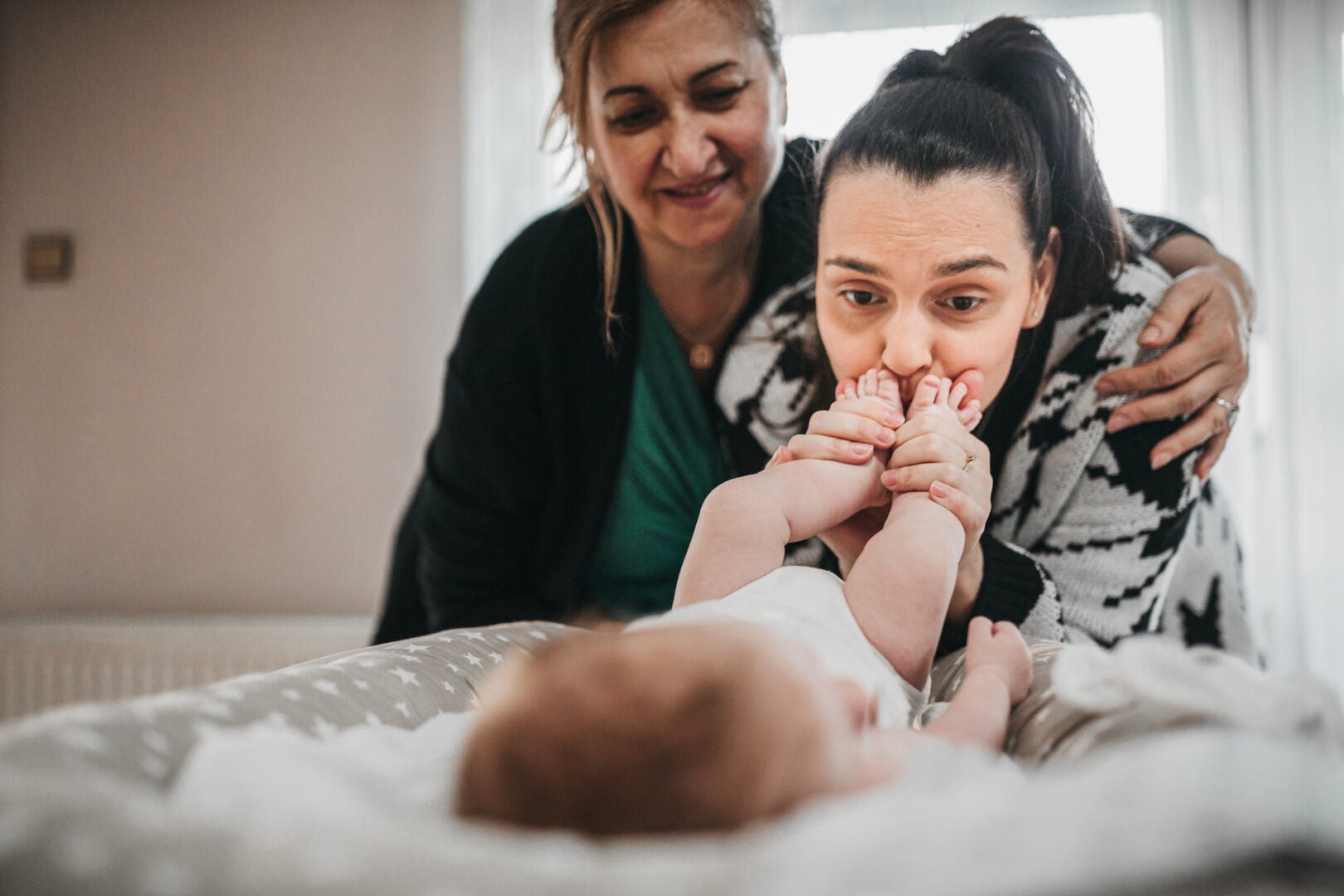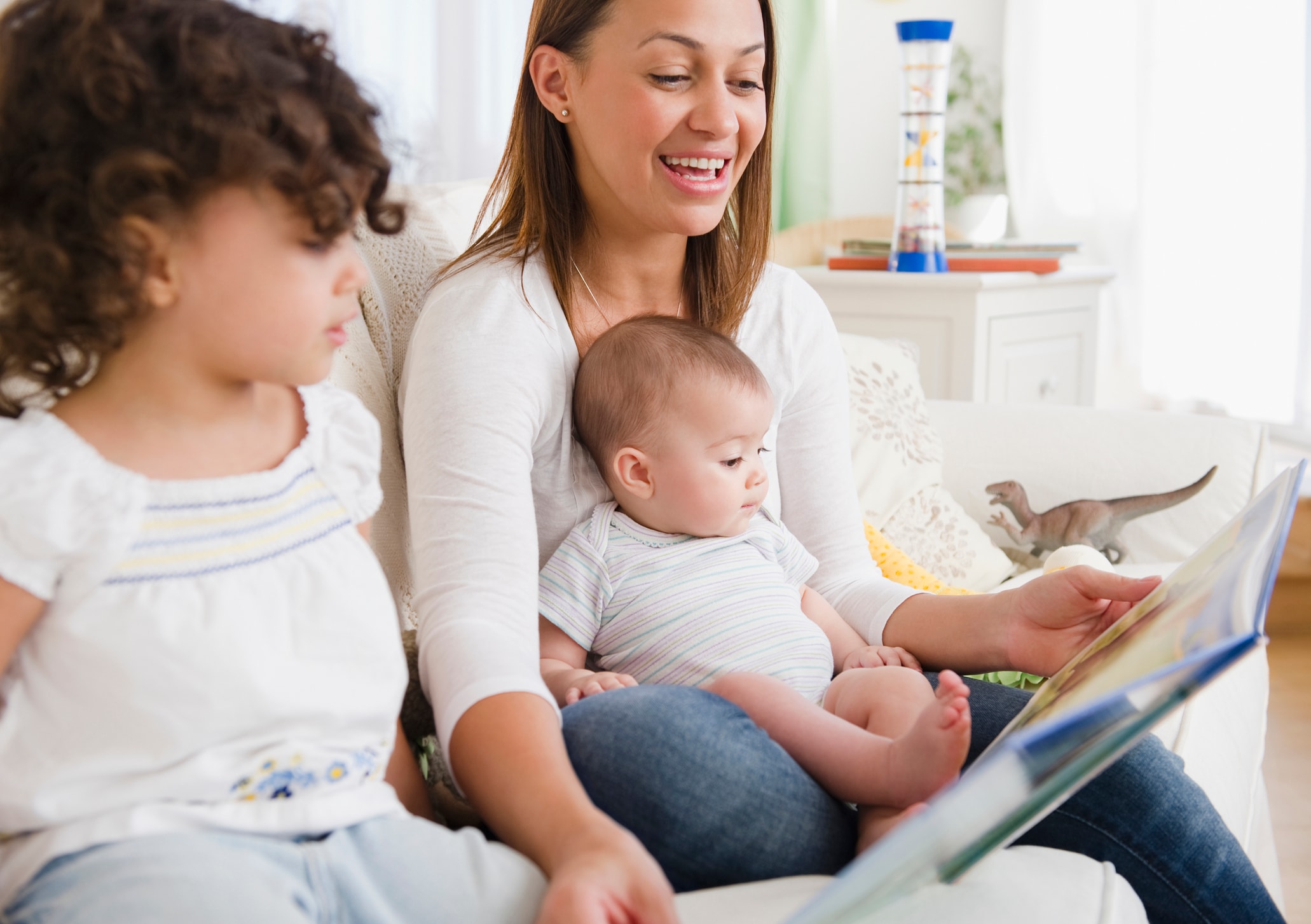It’s no secret that grandparents and their grandkids can share a very special relationship. Research has shown grandkids who enjoy close relationships with their grandparents have better emotional and behavioral health, and grandparents enjoy psychological benefits from time with their grandkids, too. In order for those strong grandparent relationships to exist, parents and grandparents have to work together to establish healthy communication and boundaries.
“Parents and grandparents who have respectful and loving relationships can speak with each other about concerns, beliefs and perspectives,” says Mayra Mendez, a licensed psychotherapist and program coordinator at Providence Saint John’s Child and Family Development Center in Santa Monica.
“Parents and grandparents who have respectful and loving relationships can speak with each other about concerns, beliefs and perspectives.”
— Mayra Mendez, licensed psychotherapist
Creating boundaries and rules for grandparents can sometimes feel complicated, emotional and yes, uncomfortable, but it’s also essential to creating healthy family bonds. Here, experts share their advice on what a healthy grandparent boundary looks like and how to have important conversations about boundaries with your child’s grandparents.
How much should grandparents be involved?
“There is no one-size-fits-all rule for grandparent involvement or time they spend with their grandchildren and families,” Mendez says. “The right amount of interaction and time is that which works best for all family members involved.”
Some things to consider when making decisions about a child’s relationship with their grandparents include:
- The benefits of grandparent support and involvement.
- How you’d like to handle activities, special events, holidays and child care.
- Family norms in each parent’s upbringing and how you’d like to follow or differ from those examples.
- Traditions and cultural values that can be passed on by grandparents.
- How grandparent relationships might enrich kids’ social-emotional health.
- Evolving needs as children grow and the family dynamic changes.
What boundaries should you discuss with grandparents?
Here is a short list of five important and very common topics to cover in boundary-setting conversations with your parents and in-laws and how to talk about them effectively before tender emotions bubble up.
1. What will happen during pregnancy, birth and welcoming a new baby
The excitement of welcoming a new baby can create unforeseen conflicts between some parents and grandparents. “If your partner wants to be with you at your doctor appointment and your mom insists that she also has to be there, that’s a boundary issue,” says Jeanette Raymond, a licensed psychologist who practices in Los Angeles. “You have to talk about these things at the beginning, not wait until an issue arises.”
Raymond says you might consider things like:
- Who will attend appointments?
- Who will be invited to witness the birth?
- When and how will grandparents be given updates?
- When will grandparents be able to safely meet the baby?
- How do you want to organize all the events and milestones associated with welcoming a new baby?
“This is the most important time to start building the boundaries of what works for you so it doesn’t get to the point where you’re having to reject anyone, make someone feel bad or make a person choose between their parent and their [partner],” Raymond says.
2. How to keep kids safe and healthy
The best practices for child safety change all the time as experts learn new information. For example, when many grandparents were starting their families, crib bumpers were a popular item. In April 2021, legislation was introduced in the US House of Representatives to ban sales of crib bumpers because of the risks they pose.
“Openly share with grandparents how the rules are helpful to you as a parent and how they are developmentally appropriate and enriching to the child.”
— Mayra Mendez, licensed psychotherapist
When kids will be in a grandparent’s care, it’s important that your rules for things like safe sleep, car seat safety and hygiene are communicated and respected. “Discuss the rules and why they exist,” Mendez says. “Openly share with grandparents how the rules are helpful to you as a parent and how they are developmentally appropriate and enriching to the child.”
3. How to handle food choices and treats
Maybe you’re a vegetarian, and your in-laws don’t think the kids should eat a vegetarian diet. Or, maybe one set of grandparents has a habit of treating kids to way too many cookies whenever they visit. Whatever the case, disagreements over meals and snacks are not uncommon.
If you find yourself in a tough spot, Raymond says to thank grandparents for their care and investment in your child, but also correct them if they go against your rules. “Say, ‘Thank you for taking care of my kid. I know you’re coming from a good place, but I have different views about my child’s diet,” Raymond says.
4. The dos and don’ts of gift-giving
Some grandparents may want to spoil their grandkids with expensive toys and presents every time they visit, but you might have other ideas. If the stockpile of pricey LEGO sets is getting out of control, have a chat about how grandparents can better align their displays of affection with your family values.
Thank them for their generosity, says Mendez, but also let them know you see gift-giving as a chance to communicate important lessons. “Share thoughts about teaching kids the value of learning to delay gratification and the entitlement that may be the message sent to kids when they are given elaborate and expensive gifts,” she says.
“Share thoughts about teaching kids the value of learning to delay gratification and the entitlement that may be the message sent to kids when they are given elaborate and expensive gifts.”
— Mayra Mendez, licensed psychotherapist
You might even suggest other things grandparents can give as gifts that improve kids’ well-being, such as time to play games or read books together or go on special outings to a museum or library.
5. What your parenting style means for grandparenting
Just as safety guidelines change frequently, so do parenting styles. Parenting experts these days advocate for time-ins and positive discipline. When grandparents were raising their own kids, the advice was likely different. Raymond says it’s important not to judge grandparents if they aren’t immediately on the same page, but explain how you’d like to handle parenting issues, such as behavior management and discipline.
If there’s pushback, remind grandparents that you are doing what is best for your child, just as they did for you when you were small. Raymond proposes, “You can say something like, ‘You brought me up to think. You brought me up to care for my kids. You brought me up to be serious about parenting, and I am. These are the ways in which I’m choosing to be a parent, and it would be really good if you honored that, too’.”
“You can say something like, ‘You brought me up to be serious about parenting, and I am. These are the ways in which I’m choosing to be a parent, and it would be really good if you honored that, too’.”
— Jeanette Raymond, psychologist
How do you set healthy boundaries with grandparents?
The first step to setting healthy boundaries is to determine the needs, goals and values of your individual family, says Raymond. “Parents have to talk about what they want and how they want things to go,” she explains. “They have to feel comfortable about the way they want to go through the pregnancy and the birth, and then the future. Once they can see how they want it to work, then they can share that vision with the grandparents.”
But how do you go about having the actual conversation around boundaries? Here are some strategies to keep in mind:
Communicate clearly and honestly
“Lay the groundwork for what you would like from grandparents,” Raymond says. “Parents can say, ‘This is our vision, this is how we’re going to do it, and this is how we’d like you to be involved.’ So it feels like more of an invitation, and so the grandparents don’t feel like you’re not wanting to include them or that you’re not valuing them.”
“Parents can say, ‘This is our vision, this is how we’re going to do it, and this is how we’d like you to be involved’.”
— Jeanette Raymond, psychologist
Use active listening
Active listening is not just hearing the words being said, but also striving to understand and engage with the other person’s point-of-view. “Parents can share their thoughts, desires, and plans for boundary setting,” Mendez says.” But they should also enlist ideas and thoughts from grandparents to develop a mutually agreed upon action plan that serves the well-being of all family members.”
Honor grandparents’ positive intentions
“Shifting the parent mindset from one of feeling threatened or of wanting to have ultimate control will help open interactions to invite greater collaboration,” Mendez says. “Give grandparents credit and praise for trying to be helpful, and work with them to support collaboration rather than power struggles.”
What’s the best way to handle disagreements?
You and your parents or in-laws may not see eye-to-eye. You won’t always be able to see the trouble spots coming ahead of time, but you can agree to resolve differences with mutual respect and the grandkids’ best interests in mind.
“If there are disagreements between family members, discussions and problem solving are best handled outside of the presence of children,” Mendez says. “Set aside time to work through parenting plans and expectations with the intent of working together as a team. Challenge becomes collaboration when conflicting parties are open to discourse, collaboration, negotiation and mutually agreed upon action plans.”





